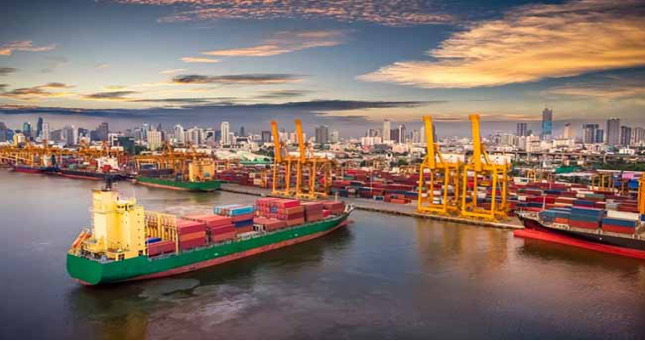FACTORS TO CONSIDER DURING PEAK SEASON SHIPPING IN CHINA
2025-08-23 10:14

As is the case in almost every industry, the shipping has seasons when rates go up and, for a few months, it becomes much more difficult for shippers to book space for their cargoes on board the desired vessels.
The peak shipping season or peak season , as it is known in English, runs from late July/August through October. During this time, shippers who have not prepared and booked their container shipments well in advance face delays due to not being able to load on the expected dates or much higher rates in order to ensure that their cargoes are shipped.
This is a situation that happens every year and one that experienced shippers should be prepared for. But this year, the peak shipping season could be especially tough, as capacity issues are more intense, especially for those shippers booking space on transpacific routes.
Heading into the peak shipping season, there are three important factors that all importers should pay special attention to this year.
1.The trade war, tariffs and reduced services will lead to higher rates.
Problems securing free spaces on vessels for cargo are commonplace every peak season for shippers. But this year, because some shippers have cut some of their services on transpacific routes in response to the trade war between China and the U.S. and tariff hikes, we can expect greater capacity problems.
In the event of such record numbers and with such reduced capacity, even shippers with annual contracts could find it difficult to secure their slots and some of them could end up with no space for 100% of the planned cargoes.
2.Extra charges such as GRI or Peak Season Surcharge add to the high prices.
Shippers will see extra charges appear in their ocean freight quotes because of the application of GRIs or surcharges such as Peak Season Surcharge in the coming months.
In addition to the higher base rates that carriers impose during peak season and surcharges such as EBS, during peak season it is common to see additional surcharges such as PSS or Peak Season Surcharge, designed to compensate for the extra expenses incurred by carriers to cope with the frenetic pace of activity they face for a few months.
The Peak Season Surcharge is time-bound and its application is limited to the peak season, so it seems more easily justifiable for shipping lines. However, the GRI opens up the possibility of maintaining the price increase on a more prolonged basis, making the mechanism attractive to many shipping operators, who dread the time to cut rates again, once the peak season has come to an end.
3.Shortage of truck drivers in the US adds to list of complications
The trucking shortage experienced in the United States in recent years and intensified in recent months will be even more complicated during this peak season. Even though the problem seems to have lessened in intensity in some areas, it is still quite severe and the peak season threatens to escalate the problem.
For U.S. importers, coping with this situation will be a major challenge this year. Many inbound imports into the U.S. will suffer delays, as it will be nearly impossible to secure the necessary ground transportation fast enough after clearing customs clearance . If this begins to happen on a large scale at any port, it is highly likely that congestion problems will become acute.
Occasional shippers: take extra precautions.
If there is one type of shipper for whom the peak season is particularly tough, it is the occasional shipper.
Those who ship from time to time find themselves in a situation where their bargaining power with carriers is much more limited than that of shippers who have large volumes of regular shipments under contract.
This is true at any time of the year, but during peak season, carriers have no interest in finding new customers, even if they may have potential as regular shippers in the future. What matters during peak season is short-term profit and for less experienced shippers, that translates into a commitment to large volumes of shipments - which is usually not an option - or paying shipping rates well above the usual price.
In any case, it is important to keep in mind that the influence of freight forwarders over shipping lines is limited. The final decision always rests with the shipping line, so in many cases the only thing forwarders can do during this season is to try to lobby and negotiate to get the best result for their clients.
But even this is not a viable option for all types of shipments, but is only possible in those cases where the shippers' schedules have been closed and defined months in advance as the spaces pre-booked by the forwarders with the shipping lines are also limited.
Written by Luis
